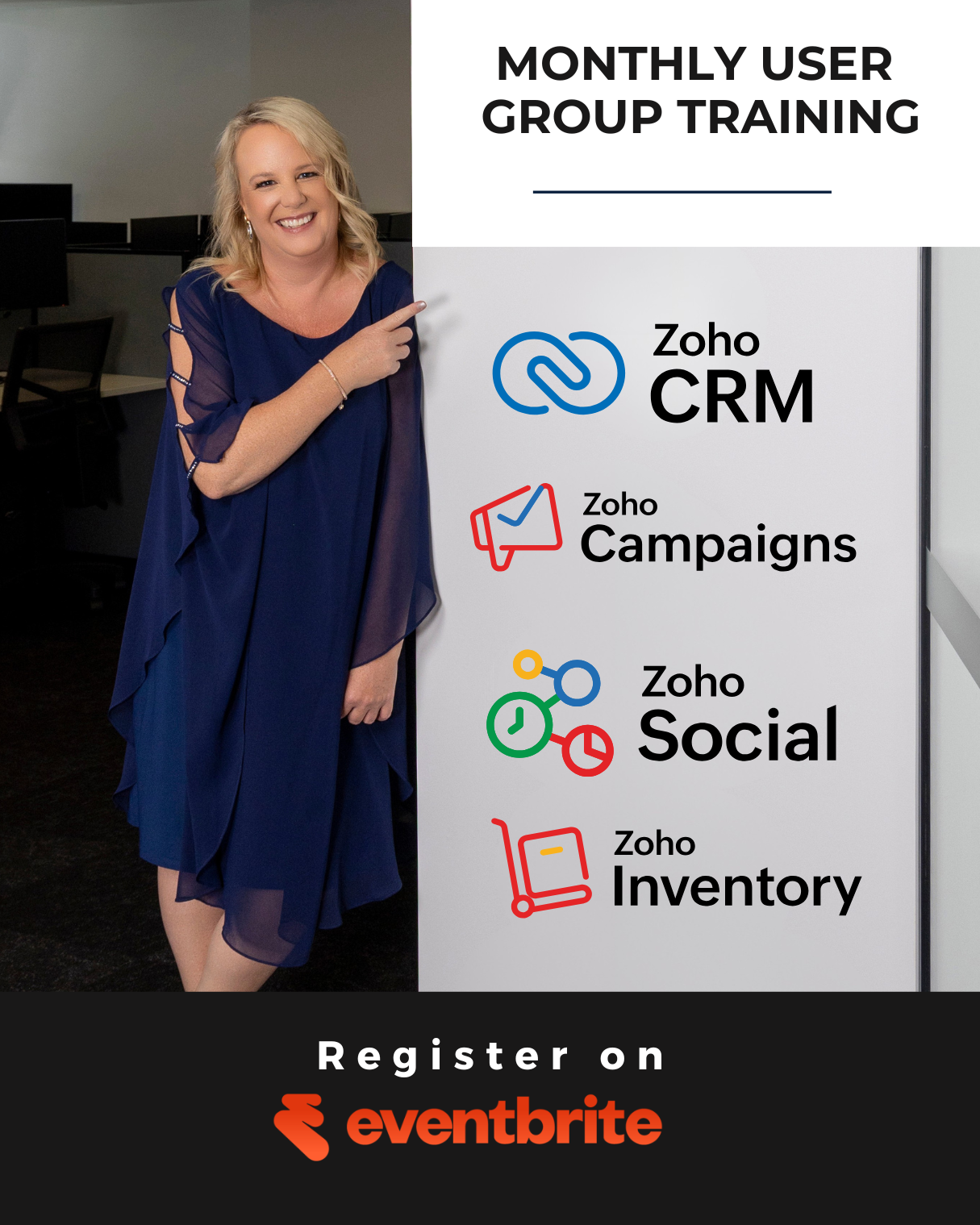Single Blog
- Home
- Top CRM Tools for Effective Marketing Strategies
Help Links
Zoho Q&A
- Where to Start with Zoho: Strategy Before Software
- Things to Consider When Choosing a Zoho Developer for Your Business
- Learn How to Customise Zoho Yourself
- Zoho Books vs. Xero: Expert Advice from Zoho Partners on Custom Solutions & Integrations
- Zoho CRM vs. HubSpot: Expert Advice from Zoho Partners
- Zoho CRM vs. Zoho Bigin
Contact Information
Address: Kontiki, Tower 1, 508/55 Plaza Parade, Maroochydore
Email: info@dynamicdigitalsolutions.com.au Website: dynamicdigitalsolutions.com.au
Copyright © Dynamic Digital Solutions. All rights reserved.





Top CRM Tools for Effective Marketing Strategies
CRM tools for marketing have become essential for businesses aiming to streamline their customer relationships and boost their marketing efforts. These powerful platforms offer a range of features that can transform how companies interact with their audience and manage their campaigns.
At Dynamic Digital Solutions, we’ve seen firsthand how the right CRM can significantly impact marketing success. In this post, we’ll explore the top CRM tools for marketing and how they can elevate your strategies.
What Makes a CRM Tool Effective for Marketing?
Effective marketing CRM tools transform businesses by centralising customer data, automating campaigns, and providing actionable insights. At Dynamic Digital Solutions, we’ve witnessed the power of the right CRM in revolutionising marketing strategies.
Centralised Customer Data Management
The foundation of any effective marketing CRM lies in its ability to manage and segment customer data. Zoho CRM, a key component of our comprehensive business solutions, excels in this area. It enables businesses to store, organise, and analyse customer information in one place. This centralisation empowers marketers to create highly targeted campaigns based on customer behaviours, preferences, and interactions. Centralised Customer Data Management is crucial for improving customer relationships, enhancing sales and marketing efforts, and making data-driven decisions.
Automated Campaign Management
Automation plays a pivotal role in scaling marketing efforts. Marketing automation has become a strategic necessity for businesses looking to maximise their revenue, with a reported ROI of 544%.
Data-Driven Insights and Reporting
Analytics capabilities prove crucial for measuring and optimising marketing efforts. CRMs should offer real-time dashboards, custom reports, and predictive analytics. These features help marketers make data-driven decisions and demonstrate ROI to stakeholders (a key factor in securing budget allocations).
Seamless Integration Capabilities
The ability to integrate with other marketing tools creates a cohesive tech stack. CRM integration can create cohesive customer journeys and improve efficiency for team members. CRMs should connect easily with email marketing platforms, social media management tools, and analytics software. This integration ensures data flows smoothly between systems, providing a holistic view of marketing performance.
User-Friendly Interface
A user-friendly interface promotes adoption across teams and maximises the CRM’s potential. Look for CRMs with intuitive dashboards, drag-and-drop functionality, and customisable views. These features reduce the learning curve and increase productivity (especially for non-technical team members).
Now that we’ve explored the key features of effective marketing CRMs, let’s examine some of the top tools available in the market and how they stack up against these criteria.
Which CRM Tools Dominate Marketing?
The digital marketing landscape demands powerful CRM tools to drive success. We analysed top contenders to help you make an informed decision for your marketing strategies.
Zoho CRM: A Comprehensive Growth Engine
Zoho CRM offers a robust solution for businesses of all sizes. Its features include:
Zoho CRM integrates seamlessly with over 40 other Zoho applications, creating a unified ecosystem for all business operations. This integration extends to third-party tools, making it versatile for businesses with existing tech stacks.
Salesforce Marketing Cloud: Enterprise-Level Automation
Salesforce Marketing Cloud caters to larger organisations with complex marketing needs. Its Journey Builder feature enables marketers to create sophisticated, multi-touch customer journeys across various channels.
Salesforce’s Sales Cloud claimed 38.3 percent – 3.3x higher than Microsoft Dynamics 365 Sales. Service Cloud racked up 44.9 percent of the niche market compared to 8.4 percent for its closest competitor.
Salesforce’s Einstein AI provides predictive analytics and personalisation at scale, allowing hyper-targeted content delivery. However, the extensive feature set comes with a steeper learning curve and higher price point (making it more suitable for enterprises with dedicated marketing teams and substantial budgets).
HubSpot CRM: Inbound Marketing Excellence
HubSpot CRM excels in the inbound marketing space. Its user-friendly interface and comprehensive marketing tools make it an excellent choice for content-driven strategies. HubSpot’s report shows that 50% of marketers plan on increasing their investment in content marketing in 2024.
HubSpot’s strength lies in its integrated approach to marketing, sales, and service. Its content management system (CMS) and SEO tools allow marketers to create, optimise, and track content performance within the same ecosystem.
Mailchimp: Email Marketing Specialist
Mailchimp has evolved from an email marketing tool into a capable CRM for small businesses. Its intuitive design and affordable pricing attract startups and solopreneurs.
Mailchimp excels in email automation and segmentation. However, it may lack advanced CRM features for rapidly scaling businesses.
Dynamic Digital Solutions: Zoho ONE Expertise
While each platform offers unique strengths, Dynamic Digital Solutions specialises in Zoho ONE implementation. This comprehensive business solution integrates over 45 applications, streamlining marketing, finance, operations, and HR. Centralised in Zoho CRM, it enhances customer relationship management, nurturing leads, and maintaining strong customer ties.
The choice of CRM tool depends on your specific business needs, budget, and growth plans. As we explore implementation strategies in the next section, consider how each tool aligns with your marketing goals and overall business objectives.
How to Implement CRM Tools for Marketing Success
Set Clear Marketing Objectives
Define your specific marketing goals before selecting a CRM tool. You might want to improve lead generation, enhance customer retention, or streamline your email campaigns. CRM implementation delivers an average ROI of 336% over three years. Prioritise your needs and align them with your overall business strategy to guide your CRM selection and implementation process.
Select the Right CRM for Your Needs
The choice of the right CRM is vital for marketing success. Consider factors such as scalability, integration capabilities, and user-friendliness. For small businesses focusing on email marketing, Mailchimp might be a suitable option. However, for more comprehensive needs, Zoho CRM offers a robust solution that integrates with over 40 other applications.
A recent survey found that 86% of buyers are willing to pay more for a great customer experience. This highlights the importance of selecting a CRM that aligns with your specific data management needs. Use free trials and demos to test different CRMs and see which one best fits your workflow.
Prepare Your Team for Change
User adoption determines successful CRM implementation. Businesses that use CRM saw an increase of 41% in sales revenue and a 32% reduction in marketing costs. To achieve this, involve key team members in the selection process and provide comprehensive training.
Create a detailed onboarding plan that includes hands-on workshops, video tutorials, and ongoing support. Appoint CRM champions within each department to provide peer-to-peer assistance and encourage adoption.
Integrate and Customise Your CRM
To maximise the effectiveness of your CRM, integrate it with your existing marketing tools. This creates a unified ecosystem that streamlines workflows and provides a holistic view of your marketing efforts. Integrating your CRM with your email marketing platform can increase open rates by up to 20% (MarketingSherpa study).
Customise your CRM to match your specific processes and terminology. This might include creating custom fields, automating repetitive tasks, or setting up personalised dashboards for different team members. Dynamic Digital Solutions specialises in tailoring Zoho ONE to fit unique business needs, ensuring that the CRM becomes an integral part of your marketing operations.
Monitor, Analyse, and Optimise
CRM implementation is an ongoing process. Regularly monitor key performance indicators (KPIs) to assess the impact of your CRM on marketing efforts. Businesses that regularly review and optimise their CRM usage see a 29% increase in sales team productivity (HubSpot).
Set up automated reports to track metrics such as lead conversion rates, customer acquisition costs, and campaign ROI. Use these insights to refine your marketing strategies and CRM usage. Conduct quarterly reviews to identify areas for improvement and ensure your CRM continues to align with your evolving marketing goals.
Final Thoughts
CRM tools for marketing have revolutionised how businesses manage customer relationships and execute marketing strategies. These platforms offer centralised data management, automated campaigns, and data-driven insights that enhance marketing effectiveness. Companies that implement the right CRM can expect increased sales revenue, reduced marketing costs, and improved team productivity (according to industry studies).
At Dynamic Digital Solutions, we recognise the transformative power of well-implemented CRM systems. Our expertise in Zoho ONE implementation can help businesses streamline their marketing operations and achieve meaningful results. We tailor solutions to meet specific business needs, ensuring that CRM tools align with unique goals and processes.
The choice of CRM platform should reflect your company’s specific requirements and growth objectives. We encourage you to explore how a customised CRM solution can elevate your marketing strategies and drive business success. Take the first step towards marketing excellence by considering how CRM tools can transform your approach to customer relationships and campaign management.
Categories
Recent Posts
Recent Comments
Archives
Categories
Recent Post
How to Set Up Effective Zoho CRM
June 23, 2025Zoho CRM Plus: Boost Your Sales and
June 21, 2025How to Create Effective Zoho CRM Dashboards
June 20, 2025Tags